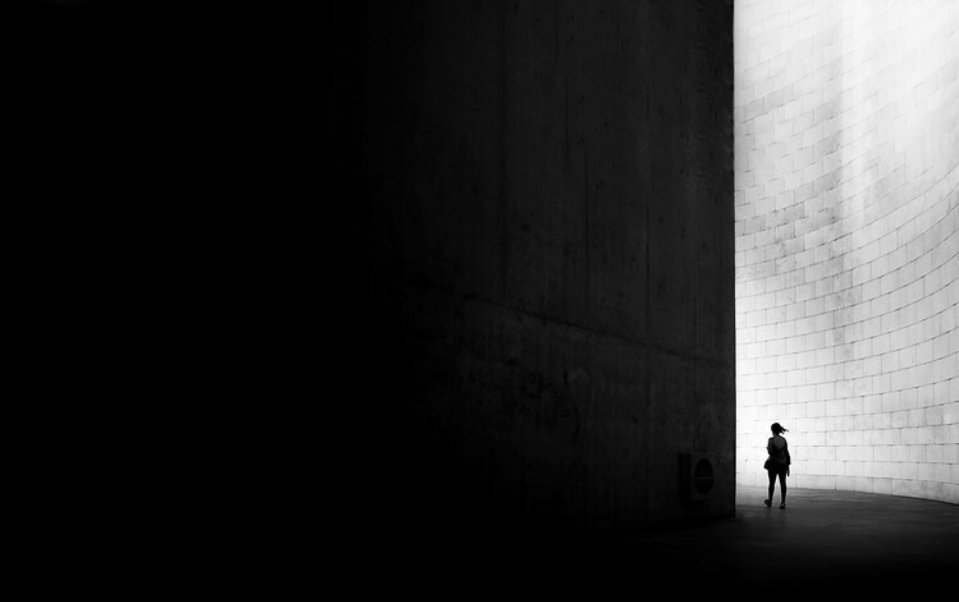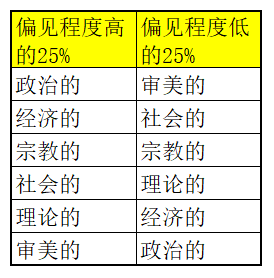
We may be living in an age of mediocrity

In the past two days, there has been a turmoil on the issue of the textbook illustrations in the primary school of the People's Education Society, and more than one person has come to ask me what they think. This is nothing to talk about at first, it's just a few points that have been talked about over and over again. What really deserves attention is not the event itself, but the fact that hundreds of millions of people can't take their eyes off such a small thing.
Of course, saying this is likely to be seen as an unpleasant arrogance, which is no small matter for many, after all. However, if a textbook has been used for many years and no one realizes how big a problem it is, it seems to at least show that this is actually a big or small matter, depending on how public opinion is characterized. In our life, if the importance of an event suddenly rises to a level beyond the comprehension of ordinary people, it is usually not a good thing.
I don't say this to wash the floor for anyone. In fact, at first I thought it was because some people were disgusted with Wuhe Qilin and used their own way to retaliate, but I soon found out that in this melee, all kinds of people gathered.
It is particularly noteworthy here that one cannot come up with another set of words when arguing. Although Wuhe Qilin is defending, he also implicitly admits that the painting is indeed inferior, instead of saying "it's not ugliness, it's just another aesthetic style".
It's not surprising that he responded this way. In The Nature of Prejudice, psychologist Gordon Allport cites a study that asked American college students to rank six values and found that the most prejudiced 25% of the population rated "political" Ranked highest and "aesthetic" the lowest, while the 25% with the most forgiving personalities and the least prejudice did the opposite.

He concluded: "Political values imply an interest in power; it means that people are accustomed to looking at the affairs of everyday life in terms of hierarchy, control, dominance and status. Some things are considered more important than others. Higher, better, more valuable." In contrast, preference for aesthetic values represents an interest in particularity, meaning that all events in life are appreciated as themselves.
This is exactly what we see in the current debate. People seem to be arguing about whether those illustrations are beautiful or ugly, but the aesthetic discourse on the surface is actually infiltrated by politics, because "ugly" is seen as a kind of ulterior motives. The weird thing is that although the parties have far different positions, at least they all seem to be using the same set of absolutely politically correct discourse.
Here, the words themselves are just tools for the game of power, or even smoke bombs, so that in many scenarios, even people who have been accustomed to these words for a long time cannot tell whether it is "low-level red" or "high-level black"—— The same sentence, according to different understandings, may be interpreted as opposite motives, and it is no wonder that digging into the motives has become a kind of entertainment for the whole people.

This inevitably makes people sigh and sad: Chinese people are just like this, spending their ingenuity and intelligence on such shitty things. However, if this is not the case with just a few people, it is necessary to think clearly about what is driving the social mentality to evolve in this direction.
Holding high the absolutely correct creed, staring at the minutiae, this is a clearly visible mentality change, which means a sharp narrowing of vision and strict morality, as well as an accompanying impulse for self-purification. Just like the oneness dispute in the era of the Byzantine Empire, fanatical believers debated theological issues endlessly in the streets and alleys. Even when customers came to ask the price of goods, the shopkeeper would answer "Trinity". If they didn't take a stand, even the bakery refused to sell it. bread.
In our atheistic country, any trivial topic, after being pan-politicized, fills the niche for theological debates like "how many angels can stand on the tip of a needle". Chekhov once said that in the dreary life of Russian society, "facts are too poor and arguments are too rich", which also seems like a portrayal of our time.
We have not overcome this age in ourselves, and it seems that it is easily overcome by it. At least what I can see is this: the fierce debate on the Internet seems to have not started a dialogue, but has had the opposite effect, that is, after feeling attacked, people more tenaciously embrace their original values, people's horizons have not expanded, but more narrow.
Diversity is not richness for many people, but represents chaos, confusion and threat. In a rough sea of uncertainty, everyone is based on the little rock under their feet, which is at least much safer and more solid. If so, there is fear lurking behind those aggressive, offensive words.
It should be said that it is also human nature - to stay in the comfort zone, after all, it is human instinct. Besides, real life alone has exhausted most people over the years, and it's hard to blame them for not doing better. After all, both curiosity and free exploration require strong nerves. Contrary to what one might think, the price of this narrowness is not just borne by others.
Originally, the changes of an era are often first captured by the most sensitive artistic minds, but unlike the West, aesthetics is too important in our social life, so it is called the "spirit of the times". This kind of counterpart (if there is one) is probably not found in the aesthetics of the moment, but in the raucous discussion in the public opinion field.
Are these worth taking seriously? It should be said that most of them are crude and will soon be washed away by time (the so-called "Internet has no memory"), and those who are involved in it probably do not regard this as a kind of artistic creation. Oscar Wilde famously said, "Crime is to the lower classes, as art is to us, but a way of seeking sensual stimulation." As uncomfortable as this may sound, it is worth saying that Says: Arguing online is actually a sensory stimulus for many people.
In terms of reflecting the changing times, that's important, but in terms of quality, it's unfortunate - some people simply claim that "Jane China is dead". In this small and closed age mud pit, the creativity of a nation collided with the left and the right, and the result was a large number of kitsch works that were indescribable.

We may be living in an age of mediocrity. When I say "mediocre" I don't mean that there are no dramatic turns (and there may be no shortage of them), but it means that it is difficult to leave behind a spiritual product that transcends the limitations of time and space, because of the creativity that such a product requires Either restricted or transferred.
If you didn't realize it was a tragedy, you were probably lucky too. In the thirteenth chapter of "Haruyuki", the first part of "Sea of Abundance", Yukio Mishima asked the precocious boy Honda to express this kind of awareness of the times:
We can only involuntarily wrap ourselves in the thought trend of an era and look at it. The different patterns of each era in the history of art have mercilessly proved this. Living in the mode of an era, no one can only observe things through this mode. […] However, people who live in patterns never see this pattern, so we are also wrapped in a pattern. It's like a goldfish, unaware that it lives in a fish tank.
If you don't understand this, think back to our fathers: the words they fought so fiercely in the day they lived in, they themselves felt meaningless after the passage of time. This is the price of keeping up with the times.
More than ten years ago, a friend came back from Germany and talked to me about it. She said, although you have written a rare reflection, you are also in it after all, and sometimes it gives me the feeling that you cannot stand outside a front-loading washing machine and observe the changes inside.
She smiled softly and calmly when she said this, but I was hit hard. It sounds like she's just standing outside the front-loading washer, and I'm not destined to be in her position, and what's more suffocating is that I have a hard time refuting this - although I can say that inside the front-loading washing machine also has its own Its irreplaceable benefits, but it is undeniable that the ocean seen by oceanographers is not the same as the ocean seen by fish.
Is it possible for a person to jump out of his own era? This seems to be an impossible task, and most people probably don't care, because in the end, it is not something that needs to be considered in worldly life, but is essentially the pursuit of transcendence and eternity.
However, paradoxically speaking, perhaps only by jumping out of this era can we live better in this era, because that allows people to see its limitations clearly, accept it, just like accepting fate, and then know how to do it-since this At this time, it is only like this, then in the short decades limited by the flesh, at least we can do our best to live a more open life, because we do not have a second chance.
Like my work?
Don't forget to support or like, so I know you are with me..
Comment…